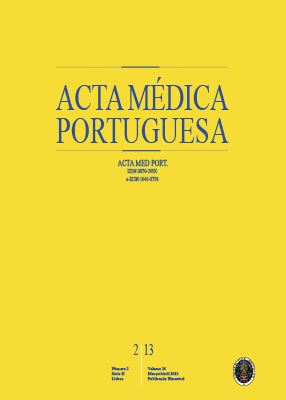Measuring Emotional Awareness from a Cognitive-Developmental Perspective: Portuguese Adaptation Studies of the Levels of Emotional Awareness Scale
DOI:
https://doi.org/10.20344/amp.231Abstract
Introduction: The Levels of Emotional Awareness Scale (LEAS) was developed to assess the emotional awareness construct, based on a cognitive-developmental perspective and influenced by the Piaget and Werner theories. It is composed of 20 emotion-evoking scenes and has been used in multiple researches related to emotion regulation, alexithymia and psychiatric disorders. It is a welldocumented, valid and reliable measure. Due to the extent of LEAS, some investigators have been using one of the parallel forms (LEAS-A), which is a part of the complete version, nevertheless there is a gap of studies concerning LEAS-A psychometric qualities. In the absence of measures for assessing the organization of the emotional experience in Portuguese samples, we developed the Portuguese version of LEAS, characterizing reliability and validity indicators and the same for LEAS-A. Materials and Methods: Three different studies were carried out with these versions, two with university students and another with a sample from the general population. Results: The Portuguese version showed high levels of reliability, superior to those found in other adaptation procedures. LEAS-A showed good reliability and indicators of discriminant and concurrent validities. The LEAS-A scores were independent from negative affect and related to the externally-oriented thinking involved in alexithymia. Conclusions: The Portuguese LEAS and LEAS-A show very adequate qualities, which allow for their scientific use. Implications for clinical and research contexts are discussed.
Downloads
Downloads
Published
How to Cite
Issue
Section
License
All the articles published in the AMP are open access and comply with the requirements of funding agencies or academic institutions. The AMP is governed by the terms of the Creative Commons ‘Attribution – Non-Commercial Use - (CC-BY-NC)’ license, regarding the use by third parties.
It is the author’s responsibility to obtain approval for the reproduction of figures, tables, etc. from other publications.
Upon acceptance of an article for publication, the authors will be asked to complete the ICMJE “Copyright Liability and Copyright Sharing Statement “(http://www.actamedicaportuguesa.com/info/AMP-NormasPublicacao.pdf) and the “Declaration of Potential Conflicts of Interest” (http:// www.icmje.org/conflicts-of-interest). An e-mail will be sent to the corresponding author to acknowledge receipt of the manuscript.
After publication, the authors are authorised to make their articles available in repositories of their institutions of origin, as long as they always mention where they were published and according to the Creative Commons license.









